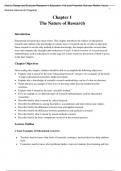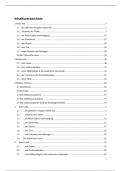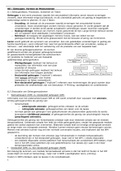Exam (elaborations)
How to Design and Evaluate Research in Education 10th Edition By Jack Fraenkel, Norman Wallen, Hyun (Instructor Manual)
- Course
- Institution
How to Design and Evaluate Research in Education, 10e Jack Fraenkel, Norman Wallen, Hyun (Instructor Manual) How to Design and Evaluate Research in Education, 10e Jack Fraenkel, Norman Wallen, Hyun (Instructor Manual)
[Show more]





